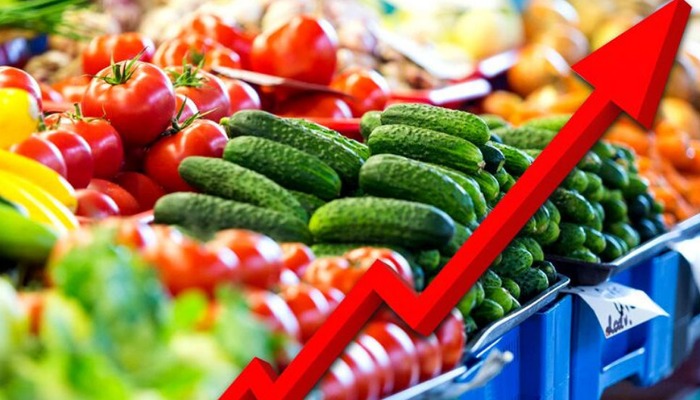According to the most recent NESG-Stanbic IBTC Business Confidence Monitor report, Nigeria’s inflation rate is expected to drop to 27.1% by December 2025.
This prediction gives consumers and companies facing protracted economic hardships optimism since it indicates that structural improvements are starting to have a positive impact despite ongoing obstacles.
With growing fuel prices and currency depreciation driving up costs across all sectors, inflation is still a major problem for Nigeria’s economy.
According to the report, when fuel subsidies were eliminated and the foreign exchange market was liberalised, inflationary pressures were especially severe in 2024.
The BCM expects these pressures to gradually subside in 2025. Headline inflation will continue to rise through the first nine months of 2025, according to the research, but it will sharply drop in the fourth quarter.
“Except for any unforeseen negative shocks to petrol prices, we expect headline inflation to remain sticky in 9M:25 but settle below 30.0 per cent from September 2025 as high petrol costs smooth out the year-on-year headline inflation.
“According to our projection, headline inflation may average 30.5% year-over-year in 2025 and settle at 27.1% by December of the same year. This assumption is based on our assessment of the USD/NGN pair, fiscal deficits, and food production,” the report said.
Monetary policy is also projected to be impacted by the predicted slowdown in inflation.
The report suggests that in late 2025, the Monetary Policy Committee of the Central Bank of Nigeria would take a more accommodating approach, possibly lowering interest rates to boost the economy.
The report also said that seasonal festive demand contributed to a minor recovery in corporate performance in December 2024.
Economic activity across sectors is measured by the Current Business Performance Index, which improved to +0.77 from -2.74 in November.
This indicated a slight increase in business activity and was the first positive number since September 2024.
However, there was a disparity in performance between industries. Driven by increasing harvest activities and demand for produce, agriculture was the best-performing industry, with a net balance of +13.93.

The non-manufacturing sectors have shown resilience as well, with a net balance of +5.80. On the other hand, the manufacturing, trade, and services sectors encountered substantial difficulties.
In December 2024, the Future Business Expectation Index, which gauges optimism on the state of business, was at +28.61, a modest decrease from +33.17 in November.
The index nonetheless shows cautious confidence among businesses for better conditions in the first quarter of 2025, despite the fall, especially in the manufacturing, non-manufacturing, and agricultural sectors.
High operating costs made worse by inflation and exchange rate swings are among the difficulties that have dampened company optimism.
Power outages continued to be a major problem, causing many businesses to rely on pricey alternative energy sources. Businesses’ problems were made worse by insecurity, restricted access to capital, and onerous tax laws.
Despite a slight improvement in credit availability in December (net balance of +8.25), the high cost of borrowing remained a deterrent to investment.
The report also emphasised ongoing structural issues that are impeding economic expansion. The increasing pressures on businesses were reflected in the +50.32 increase in the Cost of Doing Business Index in December.
The report provided a cautiously optimistic forecast for economic growth in 2025 despite these obstacles.
Nigeria’s GDP is predicted to increase from an anticipated 3.2% in 2024 to 3.5% in 2025.
Better conditions in important areas like manufacturing, non-manufacturing, and agriculture are anticipated to be the main drivers of this expansion.
It is expected that consumer spending and economic activity will be supported by the reduction of inflation and the stability of currency rates.


